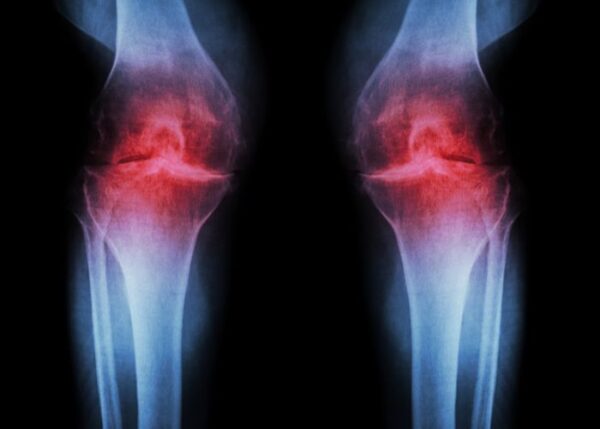Knee Plica Syndrome Specialist

Are you an athlete who participates in sports like running or cycling? Are you experiencing knee pain, especially on the front or inner side of the knee? If so, you may have a condition known as knee plica syndrome. Knee plica syndrome and synovial plica syndrome refer to inflammation in any of the four plicae, or synovial tissue linings, within the knee. Knee plica syndrome specialist, Doctor Riley J. Williams provides diagnosis as well as surgical and nonsurgical treatment options for patients in Manhattan, Brooklyn, New York City and surrounding areas who are experiencing symptoms of synovial plica syndrome. Contact Dr. Williams’ team today!
What is knee plica syndrome?
A knee plica is a naturally occurring fold in the lining of the knee joint capsule. The lining of joints is made up of a thin, slippery tissue called synovial tissue. The synovial tissue in the knee has plica (folds) that allow movement of the bones without restriction. There are four plica synovial folds in the knee joint. The fold that commonly presents itself as a clinical problem is the medial plica, which attaches sideways to the lower end of the patella (kneecap) to the lower end of the femur (thighbone) on the medial or inner side of the knee. Knee plica syndrome and synovial plica syndrome refer to inflammation in any of the four plicae, as a source of pain, stemming from overuse of repetitive motions. Knee plica syndrome is more commonly seen in runners and cyclists. Dr. Riley J. Williams, orthopedic knee specialist, serving Manhattan, Brooklyn, New York City, NY and surrounding areas, has extensive experience in treating knee plica syndrome, synovial plica syndrome and other knee injuries.

What are the symptoms of knee plica syndrome?
Individuals in the New York area who experience medial knee plica syndrome and synovial plica syndrome often report the following symptoms:
- Knee pain usually on the inner side or front of the knee
- A snapping sensation on the medial side (inside) of the knee when bent
- Tenderness
- Swelling (rare)
- In leaner individuals, a tender band of tissue may be felt underneath the skin
How is knee plica syndrome diagnosed?
Dr. Williams will ask questions regarding your medical history, site of pain and movements that worsen pain. He will perform a physical examination. It is possible to feel a taught plica through the skin in some thinner patients. Dr. Williams will order imaging tests to help diagnose the issue. An MRI can provide images of soft tissue like ligaments and tendons. An x-ray may be required to rule out other injuries with bones occurring concomitantly.
How is knee plica syndrome treated?
Non-surgical treatment:
Most individuals do well with conservative treatment options. Dr. Williams may limit the patient’s activity level if he or she is an active runner or cyclist to reduce inflammation, and, therefore, reduce pain. The use of NSAIDs (non-steroidal anti-inflammatories) such as ibuprofen or naproxen, as well as icing the knee can also mitigate pain and inflammation. Corticosteroid injections in the knee can help manage plica inflammation but should be used sparingly.
Surgical treatment:
If conservative treatment methods fail, surgery may be required. Surgery is done arthroscopically (using small incisions and a small camera). The symptomatic plica is removed. The area where the plica is taken heals with scar tissue. There are typically no functional issues associated with the removal of a symptomatic plica of the knee. Physical therapy may be necessary after surgery is performed.
For more information on knee plica syndrome, synovial plica syndrome and the treatment options available, please contact the office of Riley J. Williams, MD, orthopedic knee specialist serving Manhattan, Brooklyn, New York City, NY and surrounding areas.
Locations
610 W 58th Street
New York, NY 10019
148 39th Street, 7th Floor
Brooklyn, NY 11232


